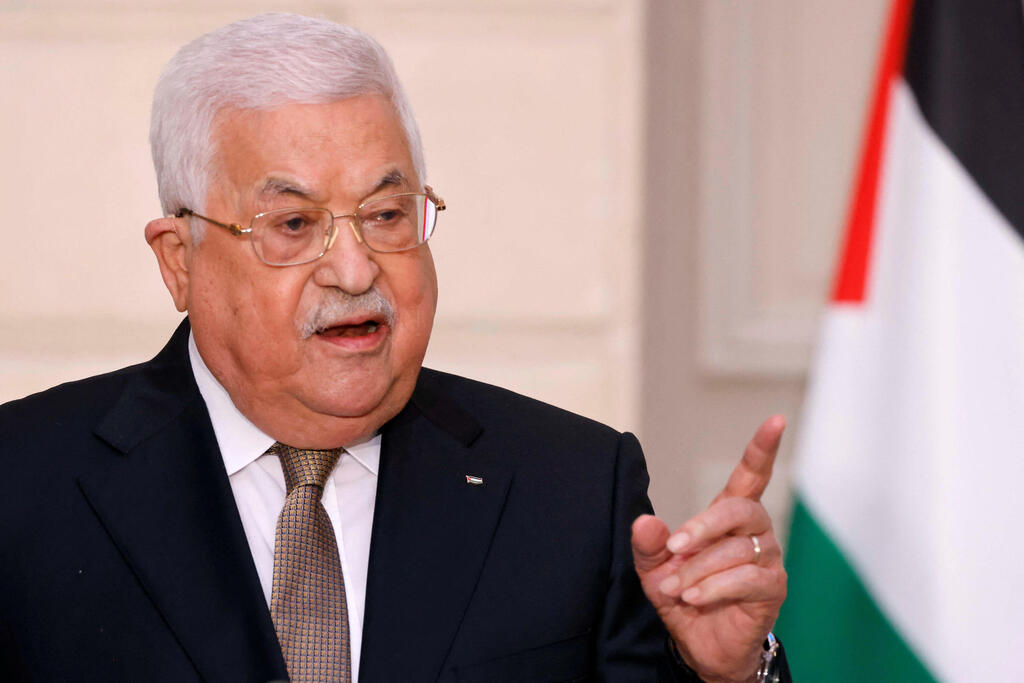Getting your Trinity Audio player ready...
Israeli diplomats were instructed to mobilize against a UN draft resolution proposed by the Palestinian Authority giving the advisory opinion of the International Court of Justice's ruling (ICJ) on Israel's rule over the West Bank, an extreme interpretation. The envoys were told in an urgent message from Foreign Minister Israel Katz, to engage with the highest levels of their host countries and urge them to oppose the resoution when it comes up for a vote in the General Assembly.
The draft is currently being circulated among UN member states, with comments due by Tuesday at 13:00 ET. The text might change based on member states' input. An emergency assembly and vote on the resolution are expected next Tuesday and Wednesday.
According to the Foreign Ministry, the text is designed to enshrine the Palestinian interpretation of the ICJ's advisory opinion—isolating Israel and encouraging UN member states and bodies to take practical steps against it.
The resolution is unusually long and detailed and includes international initiatives the Palestinians wish to advance without any basis in the advisory opinion. It addresses actions that, according to the Palestinians, should be taken by Israel, member states internally and externally, including towards companies and citizens, and actions to be taken by the UN and international organizations.
Israel argues that the draft resolution does not reflect the advisory opinion's content but is another Palestinian attempt to politically exploit the court and international legal mechanisms to promote agendas not included in the opinion. For example, the Palestinians propose a text demanding Israel’s immediate and unconditional withdrawal from territories, including Gaza and East Jerusalem, despite the advisory opinion not addressing the fighting in Gaza and clarifying that withdrawal should be done as soon as possible.
The ICJ decision
Moreover, the advisory opinion does not mention sanctions, arms embargoes, allegations of genocide, warrants for the arrest of leaders, and other issues the Palestinians included in the resolution. Not supporting the resolution does not mean a lack of support for the court or an action against it. On the contrary, not supporting the resolution sends a message opposing the trivialization and politicization of the court and international law. An analysis by the Foreign Ministry highlights the following points:
- A call for countries to ensure that companies, citizens, and entities under their jurisdiction do not operate in a way that supports Israel's hold on the occupied territories, including stopping imports of products from the West Bank and banning contact with businesses in settlements.
- A call for imposing sanctions, freezing assets, and travel bans against those responsible for the Israeli presence in the West Bank.
- A call to stop the transfer of security and dual-use equipment that could be used by Israel in the West Bank, including security and research cooperation.
- A call to avoid establishing diplomatic missions in Jerusalem. The advisory opinion does not include such a sweeping statement.
- Recognition of the existence of apartheid and the establishment of an international commission of inquiry to examine Israel's violations of the convention against racial discrimination.
- A call for accountability, independent investigations, and prosecution of those responsible for violations in the West Bank.
- A demand for Israel to withdraw its army, evacuate settlements, dismantle the separation barrier, and repeal legislation preserving the so-called occupation within six months.
- A demand for Israel to compensate for damages caused in the West Bank since 1967, including through the establishment of an international compensation registry and mechanism.
- A call for countries, international organizations, and the UN to separate between Israel and the West Bank in all their activities.
- A call for a meeting of the signatories of the Fourth Geneva Convention.
- A decision to convene an international conference to promote the implementation of UN resolutions regarding the "Question of Palestine."
- A demand for a report from the UN Secretary-General on the implementation of this resolution.
- The principle that Israel's security needs cannot outweigh the principle of not acquiring territory by force.
All embassies were asked to "approach the highest levels in your host countries and request them, as mentioned, to oppose the resolution and not engage with the text. This is a unilateral decision that seeks to impose a solution to the conflict and stands in direct contradiction to the principle of achieving a political solution through negotiations between the parties. The resolution does not consider Israel's security needs, ignores the October 7 terrorist attack, and further attempts to harm Israel's ability to defend itself by encouraging restrictions on security exports to Israel and cooperation with it.
"The draft resolution encourages boycotts against Israel and aims to isolate it politically and harm it economically. It represents another step in the Palestinian effort to falsely define Israel as an apartheid state and promote a legal campaign against Israel. Moreover, isolating Israel through such a resolution will only strengthen Iran and its proxies and distance any negotiations. Accordingly, we request our friends to oppose this resolution."





